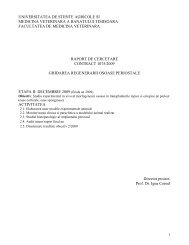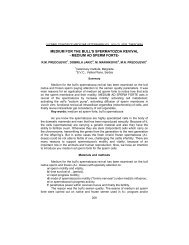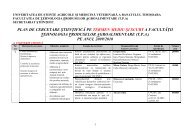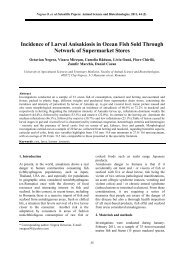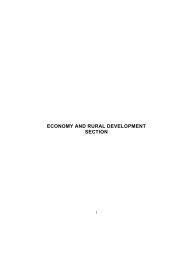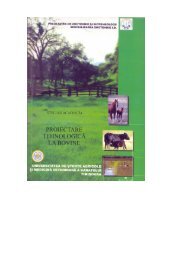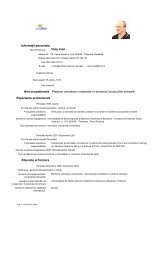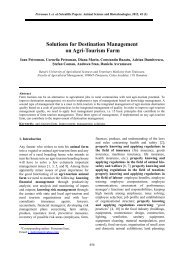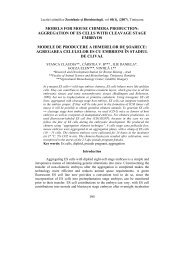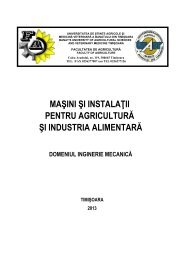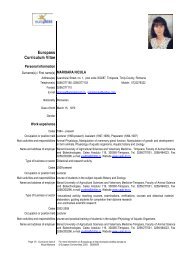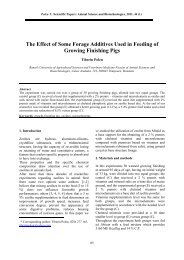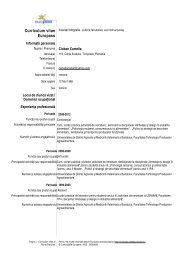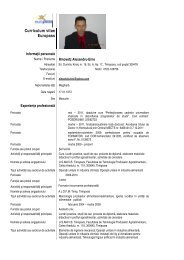journal of linguistic studies
journal of linguistic studies
journal of linguistic studies
You also want an ePaper? Increase the reach of your titles
YUMPU automatically turns print PDFs into web optimized ePapers that Google loves.
politicians. (specific statement 2) Cross-national variations in the political and<br />
economic context systematically increase or undermine the voter's ability to<br />
ascertain the competency <strong>of</strong> incumbents. (EPb6)<br />
Step 1d is exploited in situations when the authors’ aim is to indicate a gap in the<br />
previous research, which is accomplished by the use <strong>of</strong> the negative quantifier little with<br />
the nouns attention, effort, negative verb phrases such as have not yet settled and<br />
prepositional phrases as without any explanation.<br />
(4) In the debate on ‘flexicurity’, relatively little attention has been paid to how<br />
responsive traditional areas <strong>of</strong> social security have been to increasing flexibility in<br />
the labour market. (SPa7)<br />
Move Background includes Step 1e - using contradictory statements, which, as its<br />
name suggests, points to the exploitation <strong>of</strong> the sentences contradictory to the previous<br />
ones. It is signalled by the use <strong>of</strong> discourse markers however, but and the adjective<br />
contradictory.<br />
(5) Political parties are active when citizens choose among candidates in<br />
elections and when winning candidates choose among policy alternatives in<br />
government. But the inextricably linked institutions, incentives, and behaviour<br />
that determine these multistage choices are substantively complex and<br />
analytically unwieldy, particularly if modelled explicitly and considered in total,<br />
from citizen preferences through government outcomes. (EPb4)<br />
The second step within Background move is Stating Key Characteristics, referring<br />
to the key characteristics <strong>of</strong> a topic. It appears in only the social policy corpus, meaning<br />
that it is optional. Step 2 is characterised by the use <strong>of</strong> the verb highlight and the noun<br />
phrase a number <strong>of</strong> issues, such as in the following example:<br />
(6) The study <strong>of</strong> EU social policy highlights a number <strong>of</strong> issues especially well,<br />
among them the unfolding institutionalisation <strong>of</strong> a social field in EU politics and<br />
policy, and the changing nature <strong>of</strong> economic and social governance in Europe.<br />
(SPa1)<br />
Introducing purpose is an obligatory move in the structure <strong>of</strong> the corpus from all<br />
three fields (see Table 1). It consists <strong>of</strong> four steps relating to the authors’ intentions,<br />
problems or subjects <strong>of</strong> the research, theses, hypotheses, purpose, objective or goal which<br />
the authors present in different ways. They provide a description <strong>of</strong> their present<br />
research, indicate aim or purpose, raise certain questions and fill a gap in the previous<br />
research. The analysis has demonstrated that Step 1 is dominant in social, election and<br />
foreign policy. Step 4: Filling a Gap in the Previous Research has not been found only<br />
in the field <strong>of</strong> election policy with the reason that the same corpus does not include Step<br />
1d – indicating a gap in the previous research within Move 1 - Background, which is<br />
supposed to be filled in Move 2 - Introducing Purpose.<br />
Step 1 – Describing the Present Research is most frequently signalled by the use <strong>of</strong><br />
the determiners the / this with the inanimate nouns article, study and paper (see ex. 7).<br />
Apart from the inanimate subject, the authors tend to use the animate subject as well,<br />
83



